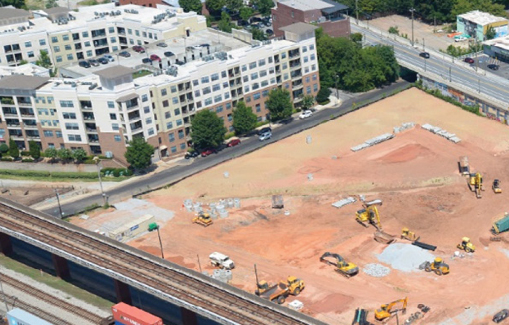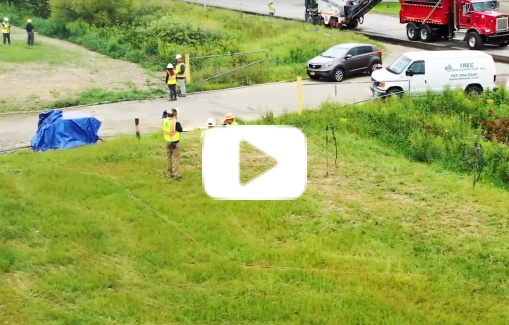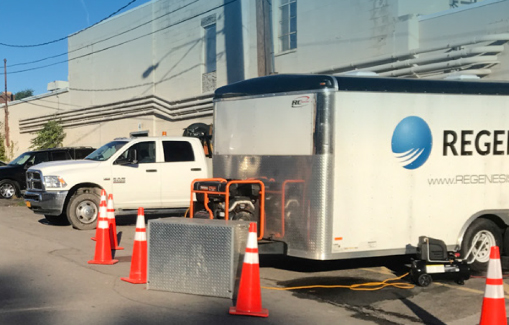Protect Your Investment and Reduce Your Liability By Choosing a Complete Remediation Solution to Cleanup Your Brownfield Site
Resulting Contamination and Environmental Impacts
More and more, developers are looking to brownfield properties as a sound investment knowing that there are now proven solutions to clean up sites where former operations using chemicals or solvents were used in industrial and manufacturing processes. These properties are being transformed into vibrant, community-enhancing food halls and making way for housing while offering urban communities new life where there once was a brownfield site.
Cleaning up chlorinated solvents which were often used for dry cleaning operations and degreasing agents, as well as petroleum hydrocarbons that may have been used to fuel vehicles, generators and other operational equipment can effectively be addressed using REGENESIS amendments and reagents for complete remediation.

Brownfields Environmental Solutions
Soil and groundwater remediation solutions at Brownfield sites may include the following: underground storage tank removal, excavations, free product removal, source treatments, migrating plume treatment, and soil treatment/mixing.
Retro-Coat Utilized to Prevent Harmful TCE and Chloroform Vapor Intrusion
Products Used in Brownfield Remediation
Solutions to treat soil and groundwater contaminants can be achieved using well-documented, proven and cost-effective in situ approaches such as sorption, enhanced anaerobic biodegradation (chlorinated solvents), enhanced aerobic biodegradation (petroleum) and/or in situ chemical oxidation (ISCO). REGENESIS provides a range of technologies for use at brownfield sites which include:
Are you planning a Brownfield site remediation project?
Contact us to explore solutions and options.
FAQs about Brownfields
A brownfield project is a site that has been contaminated from its former use. These sites require remediation and cleanup in order to be redeveloped. Typically brownfield sites are found in industrial areas but can also occur in urban areas as a result of contaminants left by former gas station or dry cleaner sites.
Oftentimes oil spills are remediated by either chemical dispersants or through biodegradation. Chemical dispersants can break down the oil and allow it to become easily absorbed by water. This method is not ideal for all situations and should not be used when it could affect marine life. Biodegradation is the process of bacteria and microorganisms breaking down the oil into less harmful substances.
Brownfield site remediation may include remediating the soil and groundwater by the following: underground storage tank removal, excavations, free product removal, source treatments, migrating plume treatment, and soil treatment/mixing. These solutions can be achieved using proven and cost-effective in situ approaches such as sorption, enhanced anaerobic biodegradation (chlorinated solvents), enhanced aerobic biodegradation (petroleum) and/or in situ chemical oxidation (ISCO) or in situ chemical reduction (ISCR).

 Americas
Americas Europe
Europe Français
Français Deutsch
Deutsch Italiano
Italiano Español
Español





















